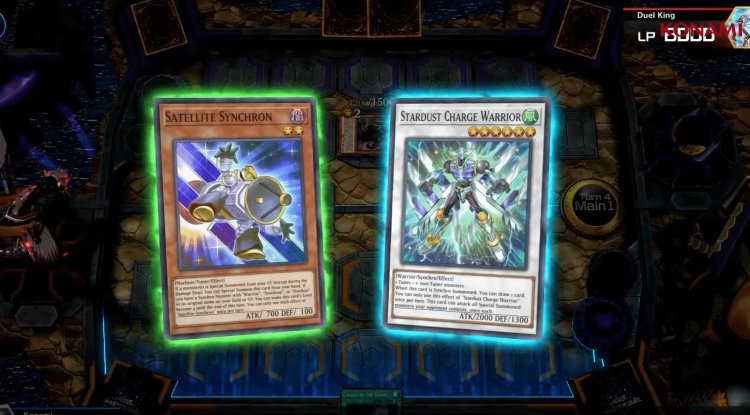How do free games attract players?

Income from free games is increasing year by year. Free games (Free-To-Play games or F2P) we all love to download and play them. The basic factor influencing their download is simple - we don’t have to pay anything for them. So, without spending money, we get a game that will entertain us and make time pass faster. Everything looks very idyllic, but when we look at the earnings of such games on a global scale, billions and billions of dollars are looming.
At first glance, some users will say that it is logical that free games make big money because of ads. The above statement is indeed true. Some free games use a click model where advertisers pay gaming companies by the number of ad clicks, and some will use a pay-per-view model which means the company makes money every time someone sees the ad. Do ads alone generate so much revenue? Only partially.
In fact, if you, as someone who plays free games, have wondered why they make so much money, this is exactly what the gaming companies that produce them want to make - involve users in the whole process without them being aware of it.
Every user must first be aware of the fact that free games have a different goal than those that offer a complete experience with their one-time purchase.
In the traditional sense of the game, the idea is to sell the player a complete gaming experience that they will be able to fully enjoy. When such a game has the quality and top performance, more copies of it will be sold and the company behind the game will have higher profits. Once an individual player buys a game, the company no longer cares whether to play it once, twice or a hundred times and it can be said that the financial transaction is over here.
The connection between the player / customer and the company is much different with free games. For companies that produce free games, providing a complete gaming experience is not the primary goal at all. Since free games are based on micro-transactions, their intention is to “keep” users in the process of playing (and paying) for as long as possible. Whether the user / player has fun playing the free game is no longer the most important item. This does not mean that the company that produced the free game does not care that it is fun, but only that the reasons for someone’s payment in the form of micro-transactions do not necessarily stem from personal entertainment.
We have now come to the realm of the psychological impact of free games on users. Many will surely think that these are empty stories because there is no game in which they would spend any amount. We have to agree with such a statement because in free games a small number of players do micro-transactions, but in such games, a few users are enough to be profitable.
What about other players who pay nothing? Very simple. Companies that produce free games just need a large pool of such players to be played against by those players who do micro-transactions. More players also mean more users watching ads, and it will always happen that someone who claimed not to spend on the game “discounts” and makes a micro-transaction because something intrigued him too much. A further issue would certainly have to do with micro-transactions. What psychological methods and tricks do free games use to get users to pay?
Loyalty in free games often means certain bonuses. This effect is used in situations when users want to complete or complete a certain part of the game, and the entry into this task began “artificially”. The game itself did it for the user. For example, in a free game in which two characters talk, you hear that there is a mission in which you need to collect ten copies of a particular item.
The character you are managing gets the mentioned item from another character in the game with whom he had an interaction and you, as a player, have already entered the task as you need to collect the other nine copies. Although as a user you did not intend to embark on such a mission in the game, the game itself has already placed you at the beginning of the mission, and the continuation can sometimes mean conducting micro-transactions to gain the ability to complete the task.
We experience the experience of loss much more intensely than when we gain something. To avoid losing, we often do compensation or “play it safe” to keep what we have in our possession. When a prize is won in a free game and the player has to keep it, the loss can often be prevented by following the instructions given. This situation can often include micro-transactions because the achievement of a certain status after the invested effort is irretrievably lost if nothing is done.
Rare things are valued much more, so rare achievements or items in a free game are viewed with different eyes. Artificially created shortages of something are often used as a marketing ploy, and in free games in a similar way can cause the need to gain. Unique items, one-off or very rare opportunities to win certain items or a unique prize can draw any player into a micro-transaction because a missed opportunity can be projected as an element that interrupts the quality of play because something unique (and therefore precious) is missed.
Stimulating player behavior with rewards is another classic trick that conditions their later actions. In free games, sets of rewards are randomly inserted to show players how their effort invested in passing a certain level or following instructions in the game results. This kind of stimulation of compulsive actions has patterns in games of chance, and in free games with prizes, the habits and expectations of the players are created. Sometimes it will be necessary to carry out a micro-transaction to meet expectations because it can be a factor that is needed to reach the reward.
Social comparison is a mechanism that works similarly to real life in free games. It might be an exaggeration to list narcissistic manifestations of behavior, but in free games, there are times when we look at other players and their success. It is not uncommon for some to envy others for success in a game in which they do not have it.
A kind of trigger for this in free games can be various forms of rankings or special items, skills and statuses that can only be got through purchase and can ensure better status or superiority over others. It is always good in a free game that the differences between the players are tiny and that there are no enormous differences between them. Free games with this model can very easily provoke competitiveness in players and they will unknowingly embark on the path of securing a better status compared to others.
These tricks for free games are not something special because many other industries use them. It is good to know them because in this way a certain distance can be achieved compared to spending money, and playing free games is viewed from the perspective of users who understand how their mechanisms work.






































